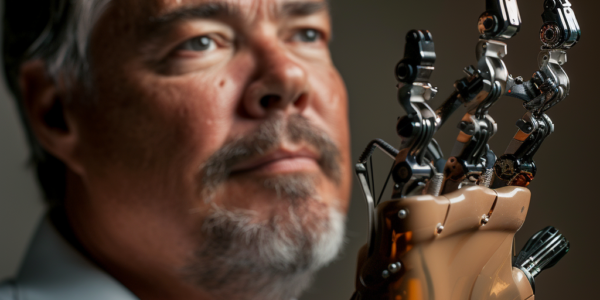Neuroprosthetic Device Allows Amputees to Feel Natural Sensations from Prosthetic Legs
Neuroprosthetics have advanced to allow amputees to experience natural sensations from artificial body parts. The ETH Zurich Neuroengineering Lab has developed a neuroprosthetic device connected to the sciatic nerve, enabling communication with the brain to relay pressure changes detected on the prosthetic foot. This breakthrough has given test subjects greater confidence and improved their ability to walk on challenging terrains. The team emphasized the significance of evoking natural sensations and highlighted the benefits of using biomimetic stimulation to develop the next generation of neuroprosthetics.
Amputee Feels Heat with Prosthesis
A 57-year-old man with an amputated hand can now feel heat with a breakthrough prosthetic device. Developed by researchers from Switzerland and Italy, the new prosthesis allows the user to differentiate between different materials based on their temperature. This pioneering advancement marks the first time that the natural sensation of temperature has been integrated into a functional prosthesis, offering hope for restoring full range of sensations for amputees.


